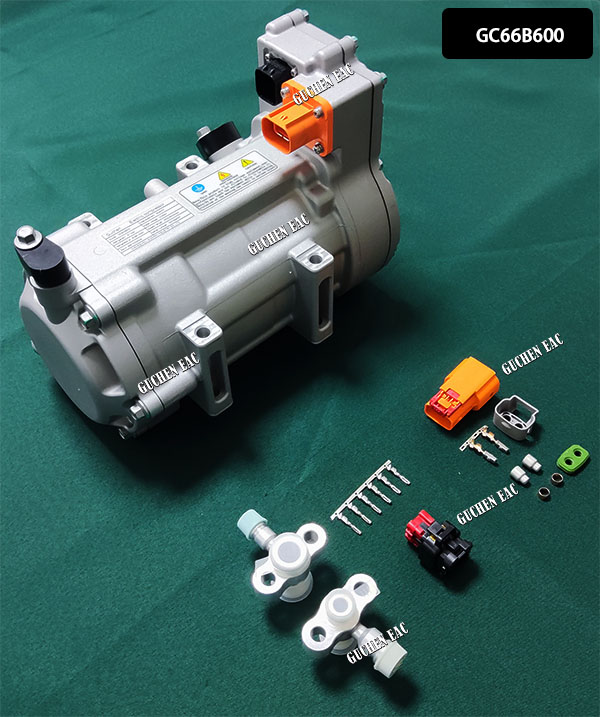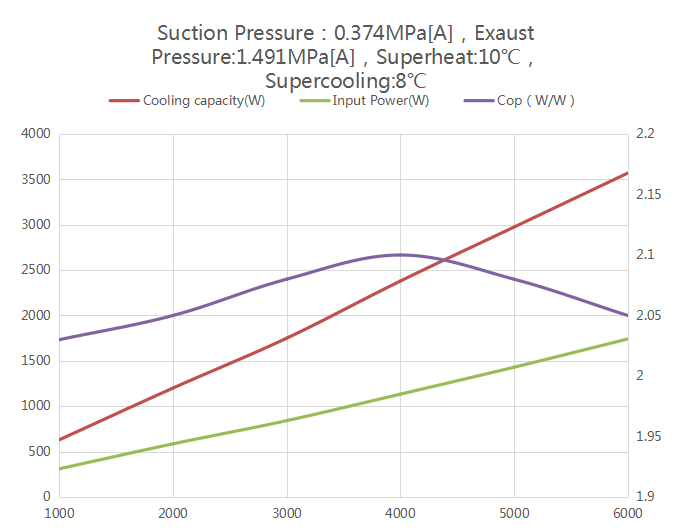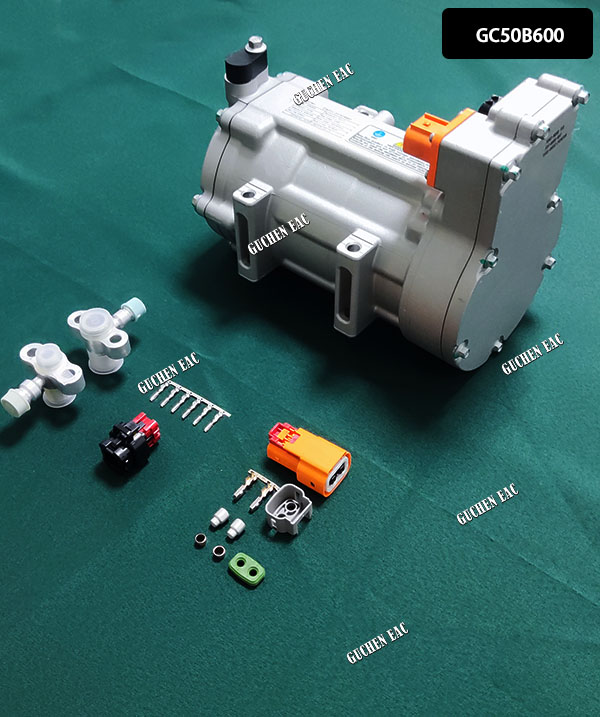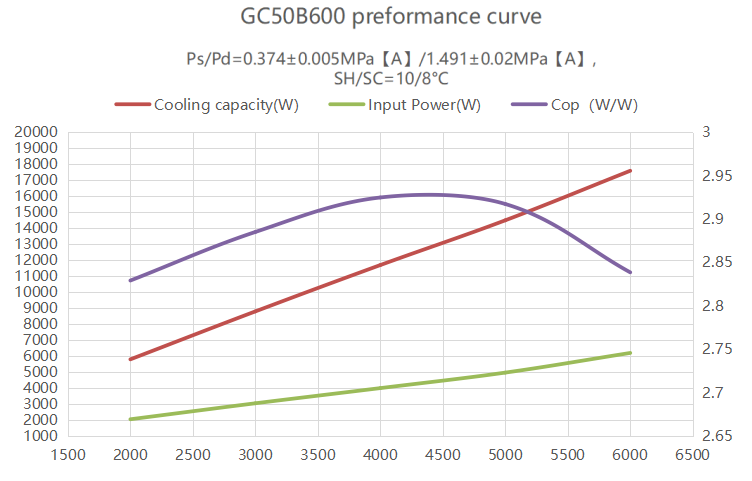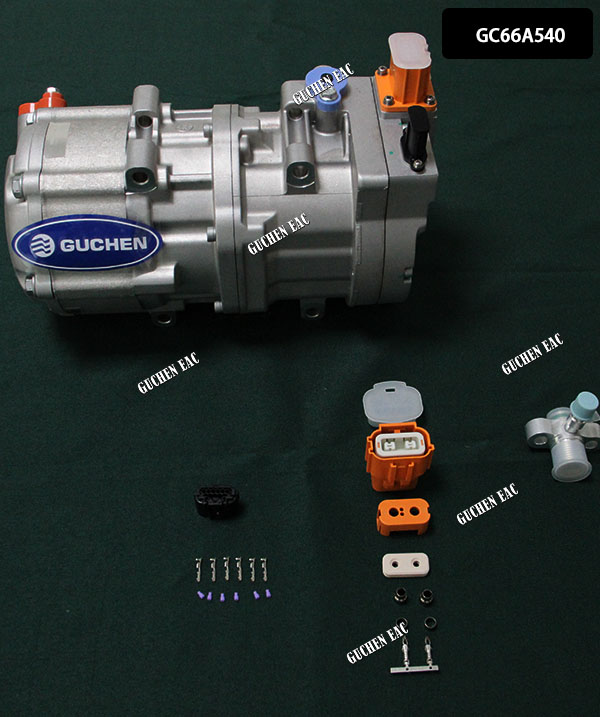The electric truck market has seen rapid growth in recent years as more logistics and commercial fleets aim to reduce emissions and operating costs. Major manufacturers are committing to electrify their truck lineups. Unlike traditional diesel trucks, electric trucks rely on large battery packs to power the electric motors. These batteries, as well as the truck cabin, need effective cooling systems to maintain optimal temperatures.
Traditional belt-driven compressors run off the truck's diesel engine. But electric trucks require
electric-driven compressors that can provide refrigeration for the cabin and battery cooling. The compressor is a key component that enables effective thermal management in electric trucks.
Specifically, electric truck manufacturers are adopting e-compressors that can deliver around 12kW of cooling capacity for the battery packs and truck cabin. This provides the necessary level of cooling to maintain safe battery temperatures for optimal performance, range and lifespan. The electric compressors also ensure driver and passenger comfort with air conditioning in the cabin.
12kW Compressor Specs
Guchen EAC provides 3 types of electric compressors (
GC66B600, GC50B600, GC66A540) specified for electric truck providing approximately 12kW of cooling capacity.
Key technical specifications for the electric compressors include:
GC66B600
◆ Voltage range 600VDC/400V-950V
◆ 14.4kW cooling capacity at peak load (6000rpm)
| GC66B600 |
| Speed (rpm) |
3000 |
4000 |
6000 |
| Refrigerating capacity (W) |
7200 |
9600 |
14400 |
| Power (W) |
2580 |
3429 |
5237 |
| COP |
2.79 |
2.80 |
2.75 |
◆ Semi-hermetically sealed unit
◆ 12V control voltage
◆ Speed regulation via PWM or CAN
◆ Uses R134a refrigerant
◆ With pre-charge function
◆ IP67 protection degree
GC50B600
◆ Voltage range 600VDC/400V-950V
◆ 50cm3/r exhaust volume
◆ 17.6kW cooling capacity at peak load 6000rpm
| GC50B600 |
| Speed (rpm) |
3000 |
4000 |
6000 |
| Refrigerating capacity (W) |
8800 |
11700 |
17600 |
| Power (W) |
3050 |
4000 |
6200 |
| COP |
2.88 |
2.92 |
2.84 |
◆ Uses R407c refrigerant
◆ Equipped with
high voltage interlocking function
◆ 66cm3/rev displacement
◆ Voltage range 540VDC/400VDC~800VDC
◆ 14.4kW cooling capacity at peak load
| GC66A540 |
| Speed (rpm) |
6000 |
4000 |
2000 |
| Cooling capacity (W) |
14400 |
9600 |
4800 |
| Applied power (W) |
5237 |
3429 |
1740 |
| COP |
2.75 |
2.8 |
2.76 |
◆ Uses R134a refrigerant
◆ Weighs around 10 kg
◆ Installation size of 112(L)/102(L)X140mm(W) X87mm(H)
◆ Noise level below 75dB at 4500rpm
◆ Mean Time Between Failure (MTBF) 10000 hours
Electric compressors utilize electric motors to drive the compression of refrigerant gas. Compared to conventional compressors, electric compressors offer advantages such as:
◆ Higher efficiency - Electric compressors have far fewer moving parts than their gas/diesel counterparts. Less friction from moving components improves mechanical efficiency. New motor designs like permanent magnet synchronous motors offer ultra high efficiency levels, exceeding the capabilities of standard induction motors.
◆ Precision control & variable speed - Electric motors can be precisely controlled by varying the frequency and voltage supplied to them. This allows for fine-tuned capacity control of the compressor based on cooling demand.
◆ Low noise - The smooth operation of electric motors results in lower noise levels, usually around 60-80 decibels. This reduction in noise pollution is beneficial for both passengers in electric vehicles and the surrounding environment.
◆ Compact size - Eliminating drive belts and pulleys enables a smaller overall package. The smaller spatial requirements of electric compressors make them easy to retrofit into existing air conditioning system in place of older conventional compressor.
For electric trucks, electric compressors are a natural fit since they can tap into the high voltage battery pack to power the AC system. This reduces parasitic load on the powertrain and enables smart cooling capacity management.
Need for Cooling
With the rise of electric trucks, providing effective cooling for the cabin and batteries is essential. Unlike gas-powered trucks, electric trucks do not generate excess heat from the engine that can warm the cabin. Therefore, dedicated cooling systems are required to maintain a comfortable temperature for the driver.
Cabin cooling is especially important for driver comfort and alertness during long hauls. Excessive heat can cause fatigue, lack of focus, and safety issues if the driver becomes overheated. Air conditioning allows the cabin temperature to be regulated, keeping the driver cool on hot days. Systems typically use refrigerant compressors that circulate chilled air.
Proper cabin cooling also prevents electronics like displays and controls from overheating. Thermal management ensures ideal operating conditions for sensitive digital components. With sufficient airflow and cooling capacity, the cabin can be maintained at around 72°F for optimum driver conditions.
Overall, an efficient electric cabin cooling system is vital for electric trucks to keep drivers comfortable, focused, and safe during all driving conditions. Refrigeration compressors that provide adequate cooling capacity are key enablers for reliable electric truck operation.
Battery Cooling
Battery cooling is essential to prevent battery overheating in electric trucks. As batteries discharge energy to power the electric motors, they generate significant heat. Excessive battery heat impacts performance and reduces battery life.
High battery temperatures accelerate chemical reactions inside lithium-ion cells, leading to faster capacity fade over time. Heat also reduces the amount of power and energy that can be utilized from the battery. Cooling the battery pack keeps temperatures within an optimal range, enabling the batteries to operate safely and efficiently.
Active liquid cooling is typically used for battery thermal management in electric trucks. The battery pack has channels that allow dielectric coolant to flow through and absorb heat. This liquid cooling system relies on a chiller or refrigerant loop to remove heat and regulate temperatures.
Electric compressors provide the cooling capacity needed for
battery thermal management. They circulate refrigerant through the chiller that cools the battery coolant. Effective battery cooling requires compressors with enough power to remove large heat loads from the battery system. Compressors also need to be efficient and reliable as battery cooling is a crucial system for electric truck performance.
Proper temperature control ensures batteries stay within their ideal operating range, allowing them to deliver maximum range and life for the electric truck.
Battery cooling through electric compressors is a key enabling technology for viable electric transportation.


